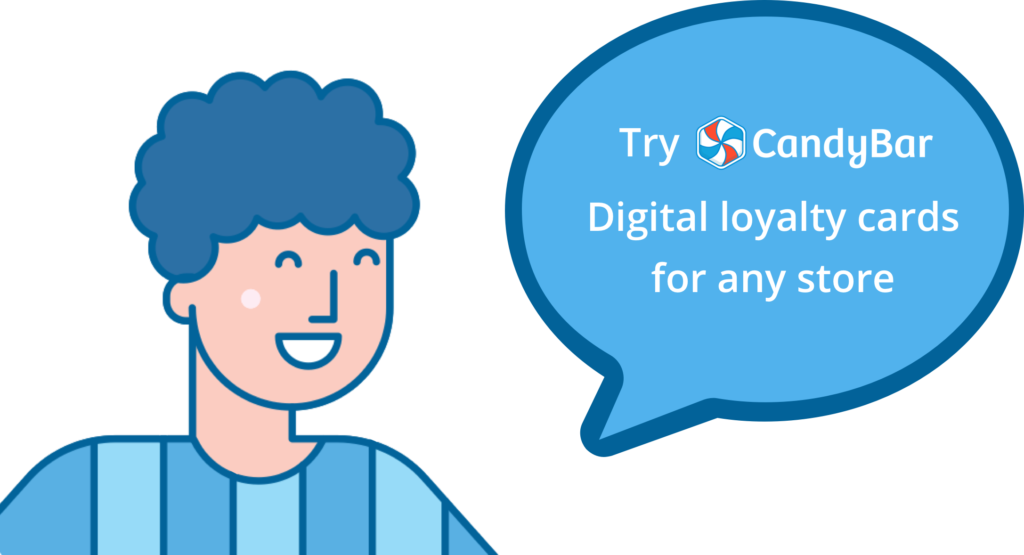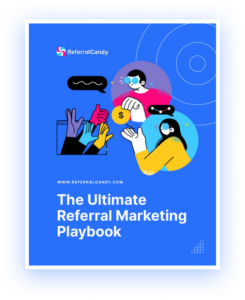Dr Jekyll and Mr. Hyde. First published in 1886, it is a classic novel about a London lawyer who investigates strange occurrences between his friend, Dr Henry Jekyll and the evil Edward Hyde.
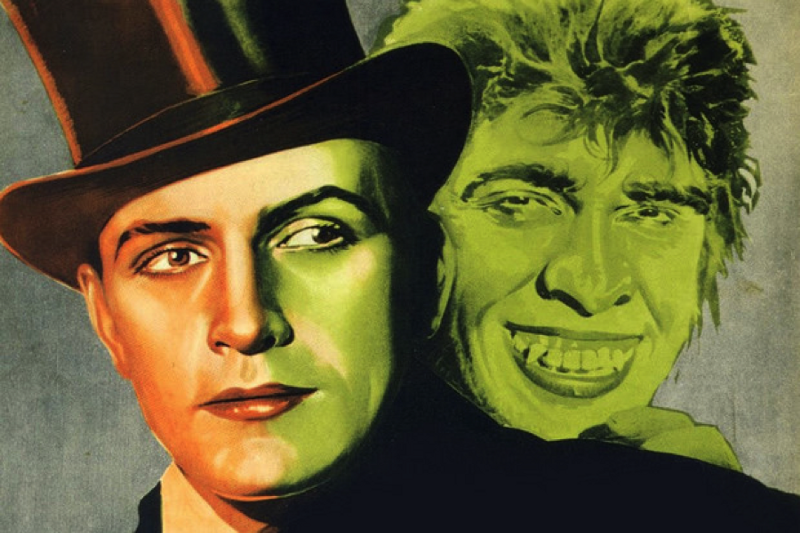
Its popularity has also led to the phrase “Jekyll and Hyde”, which describes a person who is different in moral character from one situation to another. It is also of course, the basis of the name behind the cafe, Hyde & Co.
As its name suggests, Hyde & Co. is “dual in personality” – it offers different menus for the day and the night.
It is also a perfect synthesis of many “contrasting” elements. Marrying both Western (the cafe is English-inspired) and Eastern ideas (head chef Nazz is Malay but Italian-trained), Hyde & Co has become popular for creating fusion dishes that they call their own.
But, having unique food isn’t enough. In a fussy food-obsessed Singapore, unique food only gets you a few Instagram posts, or maybe a few blog posts on some influencer’s blog. Chances are – foodies will flock to your cafe to participate in the new launch hype, then watch from the sidelines as you shutter down your doors several months later.
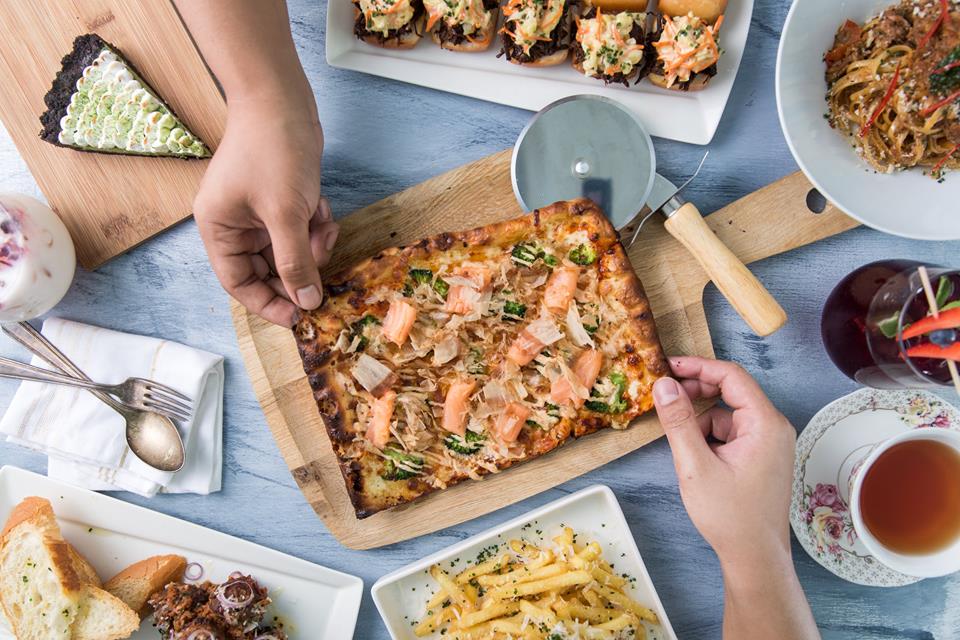
Not only that, Hyde & Co. is hipster in a hipster district. Hordes of cafes have sprouted in the area over the years, creating a competitive space where cafes fight for foot traffic, dangling novel food concepts and capitalize on the latest food trend.
With such a competitive climate, how did Hyde & Co. survive? And how did they thrive in the face of such intense competition?
Curious by their success, I reached out to Derrick Chew, the owner of Hyde & Co. to find out more.
“I am not a chef, I am a marketer.”
Derrick is not a chef. In fact, before starting Hyde & Co., Derrick had close to zero experience in the restaurant industry. Instead, his background was in theatre, communications and marketing. He had studied film before his university years, then subsequently majored in marketing at RMIT.
Then, he began his career as a freelancer for different film and theatre productions, eventually culminating in a 3-year marketing and PR stint in Pangdemonium Productions, the theatre company owned by veteran actor Adrian Pang.
Intrigued by the entrepreneurial journey, he decided to branch out on his own, eventually starting Hyde & Co. after a failed partnership.
And it turned out well.
With cafes booming in Singapore, and Instagram’s burgeoning popularity, Hyde & Co. had a great first year, and looked on track to becoming bigger and better in the next.
… Until Derrick started to notice a dip in his sales.
As a marketer, Derrick intuitively knew he could not always rely on hype and social media to keep the restaurant going.
Instead, he had to do something drastically different.
He had to reinvent the restaurant.
Reinvention #1: “Serving the Halal market”
Derrick knew the key to F&B success was in the unique selling proposition of the cafe. Did the cafe have something that was different to the rest in the market? Did the cafe offer something unique and fresh that was not offered by the competition?
To reinvent and reposition Hyde & Co., Derrick started applying a popular business strategy named the “blue ocean strategy”. Essentially, the strategy describes that instead of a red ocean, where competitors fight for dominance, businesses should find a blue ocean, a place of uncontested market space to occupy.
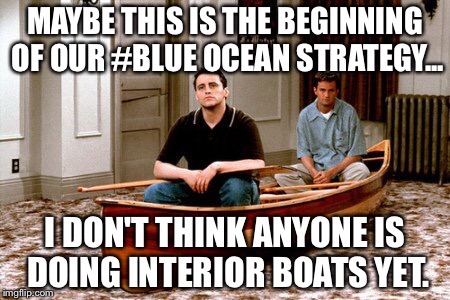
To find an area of uncontested space, Derrick knew he had to serve a niche in the market no one was serving.
And he already knew who that was.
It was the Halal market.
To give a little bit of context, Hyde & Co. is located in Singapore, a country with 4 major races (Chinese, Malay, Indian, Eurasian). The Chinese are the majority, making up 76.2% of the total population.
The second largest is the Malay community.
Most Malays in Singapore are Muslims, which means they avoid eating food that has been “contaminated” by pork (either during preparation or in the food itself). The food they consume must be halal, or permissible by Islam.
Restaurants who wish to serve the Malay-Muslim community must be Halal-certified, which makes it a little tricky as the certification process can be tedious and expensive.
Most cafes opt out of the process.
Since these cafes are usually not halal-certified, many Malays find themselves lacking in terms of food options, creating an underserved market.
Derrick saw the opportunity. Plus, it all made sense anyway.
Hyde & Co. is located at North Bridge Road, which is in the Malay heritage area designated by the government. Not only that, Derrick’s head chef is Malay.
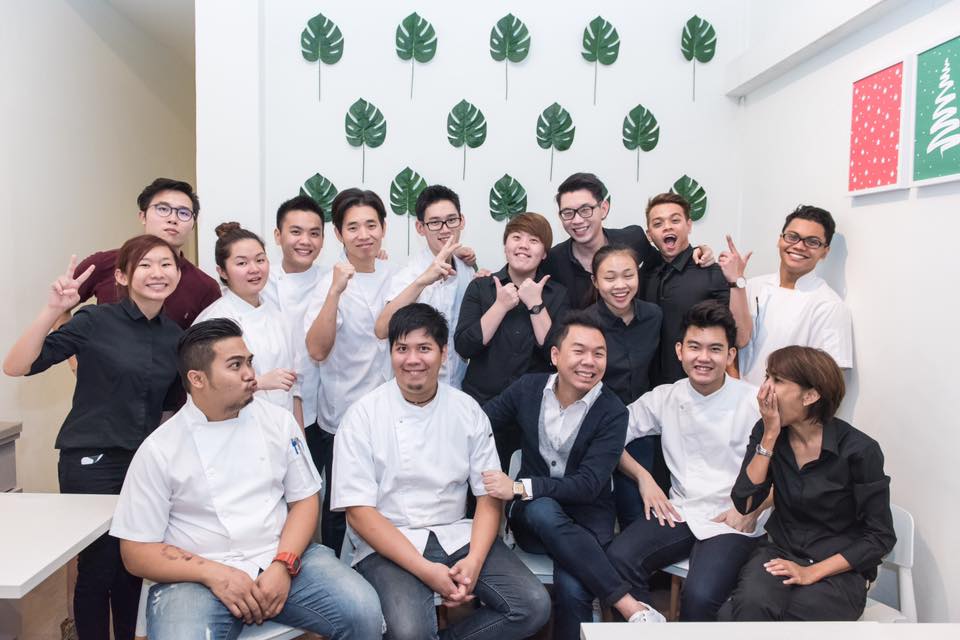
Derrick struck.
He changed up his menu, made it halal and obtained his halal certification. He then informed the entire Malay-Muslim community by inviting Halal bloggers to talk about it to their audience.
In a period where everyone furiously copied each other and served almost the same menu, Derrick did the opposite. He moved into a blue ocean, served an entirely new market and perked up his sales.
Reinvention #2: “The Festive Pop-Up”
Business is competitive.
A strategy that worked today may not work tomorrow. A strategy that worked now will not last forever.
And that is the same even for the blue ocean strategy. A blue ocean can become a red ocean when competitors start being savvy to your strategy and begin to copy.
Despite being one of the first few cafes to become halal-certified, Derrick knew it couldn’t last long. The Malay-Muslim community was growing, and the demand was increasing. More and more cafes were also looking to capture this market by obtaining halal-certification themselves.
Derrick needed to reinvent Hyde & Co. again.
As a brick-and-mortar cafe, there is a limit to how many customers you can serve a day. It was only a matter of time Hyde & Co. needed to expand to another location to get more customers and increase sales.
But… that’s a huge risk.
When you expand, your costs expand, too. Your utensils, furniture, rent, bills all double. On the other hand, with the expansion, there is no guarantee that your revenue will double as well.
The worst thing that could happen is that physical expansion occurs, chalking up more costs but business suffers.
For every restaurant that successfully launched new branches and franchises, many more failed. Derrick couldn’t take the risk of being one of those that did.
So, he asked himself, “how can I expand my business, get more sales and not incur a huge upfront investment?”
With some creativity, he got his answer.
Pop-up stores and festivals.
And that was his new blue ocean.
Since the beginning of 2017, he experimented with setting up more pop-up stores outside and within festivals. For example, at Singapore Coffee Festival 2017, there was a total attendance of 15,000 people. That was 15,000 potential people who could try out Hyde & Co.’s food and learn about their brand.
Hyde & Co. would never have experienced that kind of foot traffic at their North Bridge Road location.
Given the success of that strategy, Derrick has plans to be in every major festival in Singapore. Once again, Derrick had reinvented Hyde & Co. and captured an entirely new audience.
Reinvention #3: “The Mastermind”
Having more stores is the traditional dream.
If you had started out in the 1980s, you would have aggressively expanded, opening up new stores in new locations all over Singapore, and even globally.
But it’s 2017. Rental costs are sky-high. Prices are increasing. Retail is dying.
Physical expansion no longer guarantees future success.
Derrick needed to creatively expand Hyde & Co. without chalking up cost after cost.
And find another blue ocean he did.
Since 2017, Derrick has moved into an entire new market, one that taps into his skillset AND his experience.
An F&B consultancy.
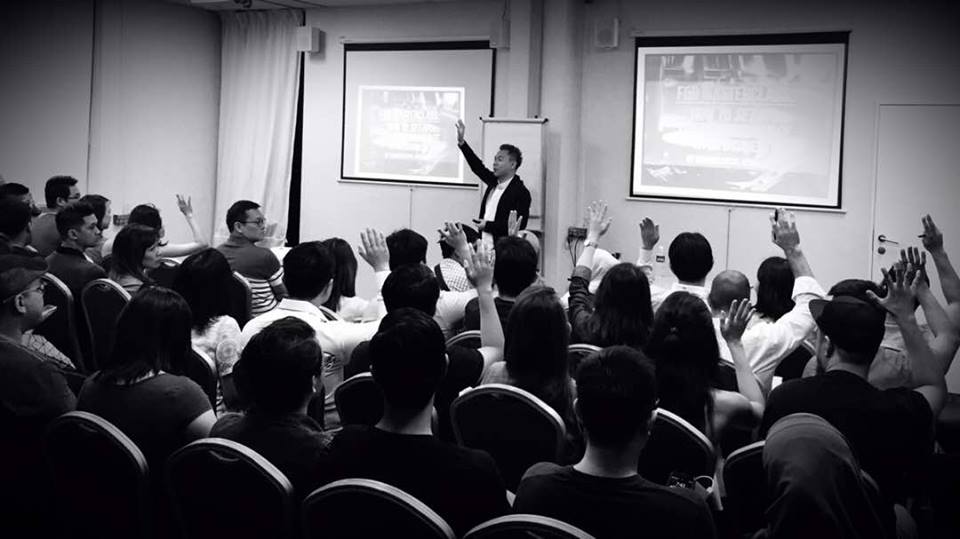
Derrick wouldn’t be one of those consultants that read a couple of books and started shooting complicated industry terminology to confuse F&B owners. He had the experience of setting up and marketing a cafe, a notoriously difficult space.
He set up a consultancy to help aspiring F&B entrepreneurs on how they should test their ideas, validate it, set up a restaurant (if necessary), get press and market their business.
Hyde & Co. had once again moved into a new blue ocean.
What is the end goal for Hyde & Co.?
Does this “blue ocean strategy” of expanding into new verticals even help Hyde & Co at all?
Derrick thinks it does.
“I like creating concepts. The idea is that in the bigger scheme of things, Hyde and Co. is something that encompasses all sorts of lifestyle, creative and multi-disciplinary businesses. Beyond that, I’m passionate about business and creating businesses.”
At the end of the day, it is not about being successful at F&B, or building multi-restaurants like Gordon Ramsay. Derrick is simply an entrepreneur who loves solving problems creatively.
Hyde & Co. is the expression of his love of that.


